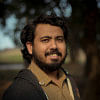The Refugee Olympic Team: Representing hope for over 100 million worldwide

When Manizha Talash first saw a video online of an upside-down man spinning with his head on the ground, she decided she wanted to do that too. As a girl in Afghanistan, however, it was a difficult dream to bring to reality. But she found a way. In the Paris Olympics 2024, she will be participating in the new sport of "breaking", a competitive form of breakdancing that blends artistry and dance with acrobatic moves.
But her path was anything but straightforward. Having started training in a gym in Kabul -- the only girl in a crew of 56 -- she kept at it, despite the disapproval of her family and death threats from others. But Afghanistan's first ever "B-girl" found her path blocked by violence after repeated bombing threats to the gym where she used to train. Afghan society frowns upon dancing in general, and soon, due to security concerns for the gym and the neighbourhood where it's situated, it was closed down.
Eventually, in 2021, the Taliban came into power in Afghanistan. Since then, women have been barred from getting formal education, and music and dancing have been outlawed. Manizha Talash's tryst with breaking, as a result, lay elsewhere. She left the country that year, not for fear of her life, but for her love of breaking, she told Reuters in June. After reaching Spain via Pakistan as a refugee, she continued her training, and earlier this year, the Refugee Olympic Team found her, giving her a ticket to be at Paris 2024.
In fact, this is the third Olympic games where a refugee team -- consisting of athletes who have been displaced from their countries of origin to safer places due to the many conflicts going on around the world – has participated. The 2016 Rio Olympics were the first games where such a team was formed, in the backdrop of the global humanitarian crisis surrounding refugees that began as a result of conflict in the Middle East. A total of 10 athletes, from four host nations, were part of the team that year. In the 2020 Tokyo games, the number went up to 29 athletes from 11 origin nations. This year's Paris games feature the largest retinue of refugee athletes, with 37 athletes from 11 origin nations.
The Refugee Olympic Team is recruited by the International Olympic Committee (IOC), and like the athletes that participate in the games through their national committees, the most important factor is sporting excellence. The United Nations High Commissioner for Refugees (UNHCR) verifies the refugee status of athletes. According to UNHCR, most of the athletes are selected from the IOC's refugee athlete scholarship programme. Under this scholarship programme, the IOC works with national Olympic committees of host countries to find athletes who have sought refuge in faraway countries, and helps them train. The training is not only meant to get them to a level sufficient for the Olympics, but also to help them excel in their sport and build a career.
Like Manizha Talash, almost everyone in the 37-member Refugee Olympic Team this year has gone through tremendous trials in their home nations, forcing them to take on perilous but inspiring journeys that have led to this moment.
For example, Saman Soltani, an Iranian canoe sprinter, had won silver for her own nation at the Asian Under-23 Championships. As a talented swimmer, Soltani was invited to Barcelona in 2022 to attend a high-end artistic swimming camp, an opportunity she grasped with both hands given women participating in artistic swimming is frowned upon in Iran. On the way back from the camp, however, Soltani received a phone call that changed her life.
Her parents informed her that the Iranian moral police were looking for her, because she had posted a photo on social media during her stay in Barcelona. It was around the same time that protests erupted in Iran over the death of Mahsa Amini in police custody, leading to strong-handed reprisals from the Iranian regime, and it became impossible for Soltani to go back to Iran. She fled to a friend's place in Austria, where she later gained asylum and later had the chance to train with the Austrian Canoe Federation. She will now appear as a canoe sprinter in the 2024 Paris Olympics.
The stories of each and every athlete in the Refugee Olympic Team is inspiring and heartbreaking -- like Dorian Keletela, a Congolese sprinter who fled to Portugal in 2016 as a 17-year-old, or Adnan Khankan, a Syrian judoka who fled his homeland and went to Germany after being conscripted into Bashar Al Assad's army in 2015.
The fact that even these stories can end in the positive outcome that is an appearance in the Olympic games -- a dream come true for any athlete -- is a huge source of inspiration for over 117 million refugees across the world. According to Thomas Bach, president of the IOC, "This will be a symbol of hope for all refugees in the world, and will make the world better aware of the magnitude of this crisis. It is also a signal to the international community that refugees are our fellow human beings and are an enrichment to society."

 For all latest news, follow The Daily Star's Google News channel.
For all latest news, follow The Daily Star's Google News channel. 



Comments